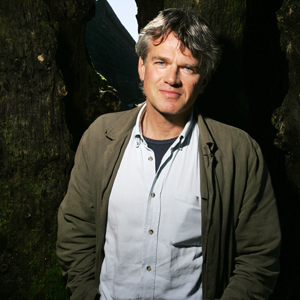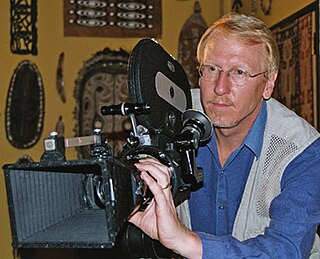Related Research Articles

Southern Africa is the southernmost region of Africa. No definition is agreed upon, but some groupings include the United Nations geoscheme, the intergovernmental Southern African Development Community, and the physical geography definition based on the physical characteristics of the land. The most restrictive definition considers the region of Southern Africa to consist of Botswana, Eswatini, Lesotho, Namibia and South Africa, while other definitions also include several other countries from the area.

The Chernobyl disaster is the world's worst nuclear accident to date.

Justin Edgar is a British film director, screenwriter and producer.
Magnus Isacsson was a Canadian documentary filmmaker whose films investigated contemporary political issues and topics in social activism.

Music by Prudence is a 2010 short documentary film directed by Roger Ross Williams. It tells the story of the then 24-year-old Zimbabwean singer-songwriter Prudence Mabhena, and follows her transcendence from a world of hatred and superstition into one of music, love, and possibilities.
Prudence Mabhena is a Zimbabwean singer. Prudence Mabhena was born with Arthrogryposis, and was severely disabled. The society she was born into considers disabilities to carry the taint of witchcraft. Because of this, she was abandoned by her family. As a result, she was raised by her maternal grandmother who sang to her while working on her farm. She later attended King George VI School for the disabled in Bulawayo.
Liyana may refer to:
Elinor Burkett is an American journalist, author, film producer, and documentary director.

Vishvanath Buddhika Keerthisena, also known as Boodee Keerthisena, is a Sri Lankan filmmaker. He began his career drawing comics before moving into painting, dress design, and visual arts. He moved into music in the late 1980s, and performed in a band called "Boo-Dee and the Woo-Zees" (1986–1992) as the lead singer.

Ben Caldwell (1945) is a Los Angeles-based arts educator and independent filmmaker.
The Cinema for Peace Foundation is a registered, non-profit organization based in Berlin, Germany. It supports film-based projects dealing with global humanitarian and environmental issues, and coordinates the Cinema for Peace awards.

Media for Development International is an American 501(c)(3) non-profit company founded in 1989. MFDI produces and distributes dramatic African social-message films for African audiences on issues such as AIDS, teenage sexuality, teenage pregnancy, women's issues and general health. Much of MFDI's best known work was done in Zimbabwe between the years of 1990 and 2000. Branch offices are in Tanzania and Zimbabwe.

Olivier Weber is a French writer, novelist and reporter at large, known primarily for his coverage of the wars in Iraq and Afghanistan. He has been a war correspondent for twenty-five years, especially in Central Asia, Africa, Middle-East and Iraq. He is an assistant professor at the Institut d'études politiques de Paris, president of the Prize Joseph Kessel and today ambassador of France at large. Weber has won several national and international awards of literature and journalism, in particular for his stories on Afghanistan and for his books on wars. His novels, travels writing books and essays have been translated in a dozen of languages.
Lucia Rikaki was a Greek film director, documentarist, writer and producer. From 1979 to 1981 Rikaki studied art history, graphic design, cinema and photography at the Dartington College of Arts in Devon, England. In 1984 she founded "Orama Films" producing art films, TV programmes and theatrical plays. In 1995 she created "104 Art Theater Stage", and "The Comedy Club" the only stand-up comedy venue to date in Greece. She is best known for her documentaries about socially sensitive issues such as immigration, education and the lives of the disabled in Greece.

Marlin Darrah is the executive director of International Film & Video (IFV), a production company based in the United States. For his documentary work in Portugal and in other locations throughout the world, Darrah was honored with a knighthood in the Royal House of Portugal.
The following lists events that happened in 2012 in Zimbabwe.
Nqobizitha "Enqore" Mlilo is a Zimbabwean video director, animator, new media artist and educator from Bulawayo, based in Harare. He released Zimbabwe's first fully animated music video in 2002 at the age of 18 for artist/presenter, Babongile, while still based in his home town, Bulawayo.

Sharon Pincott is an Australian author and specialist in African elephant behaviour. She has studied the social structure and population dynamics of a single clan of wild elephants extensively, and advocates for ending ivory trade and promoting conservation.
Disability affects many people in Zimbabwe in both rural and urban areas. In spite of services provided by the government, philanthropists and welfare agencies, people with disabilities and their families often face several barriers. Philanthropist, Jairos Jiri, started services for people with disability in Zimbabwe in the 1940s. He is regarded as the father or founder of disability work in Zimbabwe.
Zimbabwe has an active film culture that includes films made in Zimbabwe during its pre- and post-colonial periods. Economic crisis and political crisis have been features of the industry. A publication from the 1980s counted 14 cinemas in Zimbabwe's capital city, Harare. According to a 1998 report only 15 percent of the population had been to a cinema. European and American films have been made on location in Zimbabwe as well as Indian films. American films are popular in Zimbabwe but face restrictions limiting their distribution.
References
- ↑ http://www.idfa.nl/industry/Festival/films-2010.aspx?partID=591027B9-0968-4506-88AD-7F01B80F64EA/%5B%5D
- ↑ "KGVI". Kinggeorge6.org. Archived from the original on 23 April 2012. Retrieved 15 May 2012.
{{cite web}}: CS1 maint: unfit URL (link) - ↑ "liyanakg6" . Retrieved 15 May 2012.
- ↑ Wines, Michael (2 May 2006). "How Bad Is Inflation in Zimbabwe?". The New York Times.
http://www.kinggeorge6.org Archived 2011-07-25 at the Wayback Machine http://sites.google.com/site/liyanakg6 https://www.nytimes.com/2006/05/02/world/africa/02zimbabwe.html